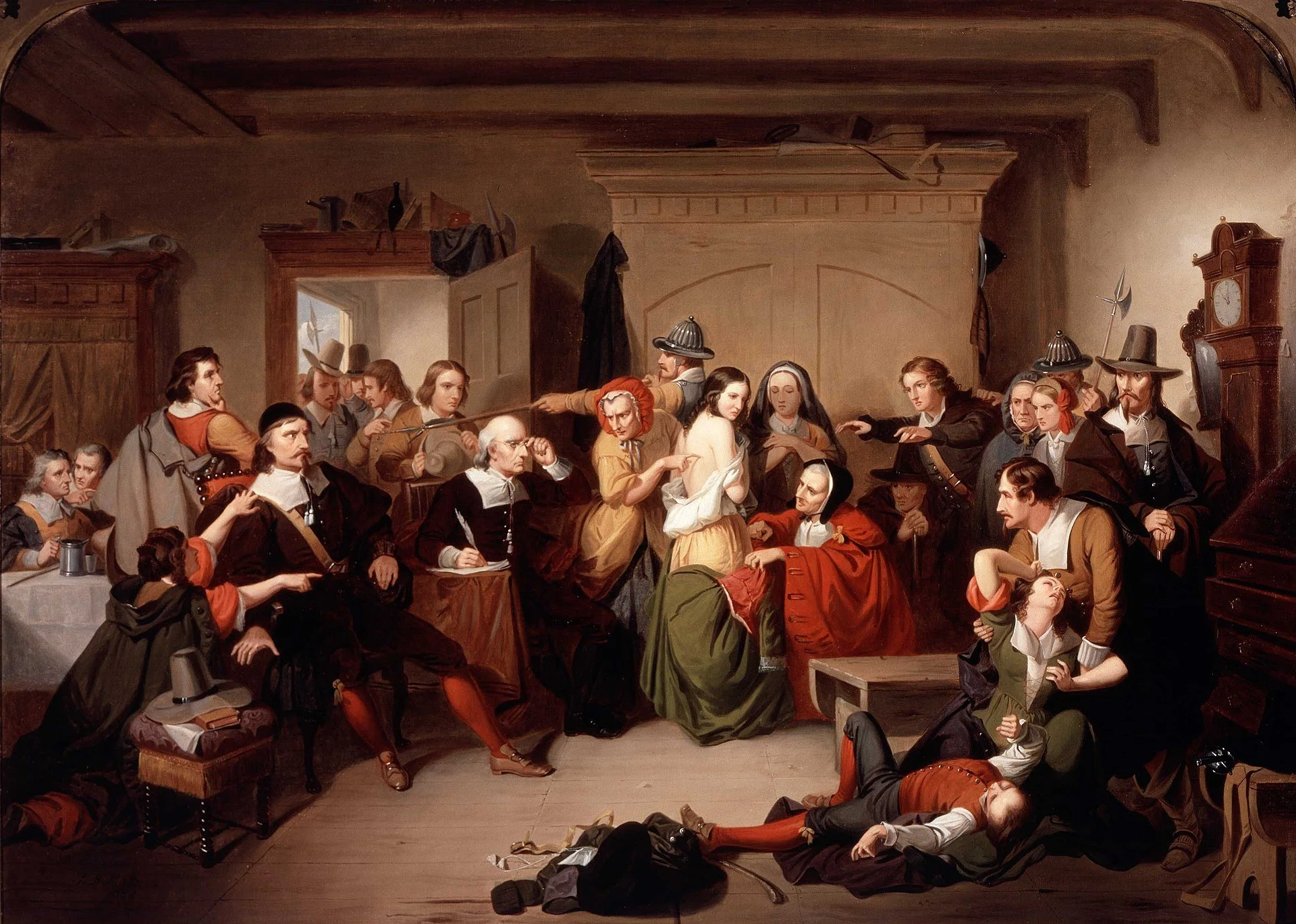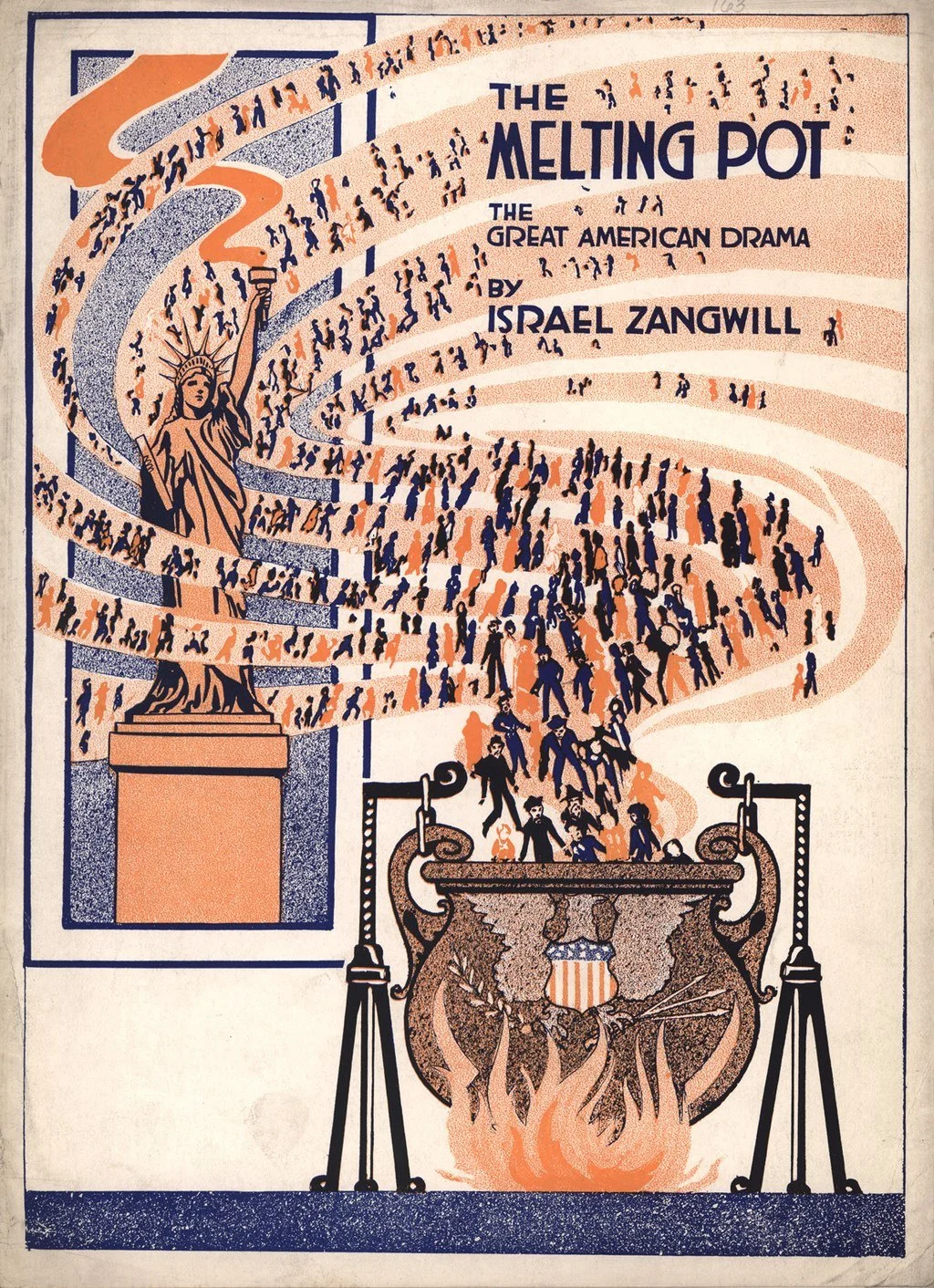
The advantages of blurred vision
“Your inability to see yourself clearly is what’s keeping you alive.’’
— Sarah Silverman (born 1970), American comedian, writer and actress. She was born in Bedford, N.H., and raised in nearby Manchester.
Manchester on a dreary October day.
Weston Observatory in Derryfield Park, Manchester. It was built in 1897, at the height of Manchester’s glory as a manufacturing center, especially for textiles.
— Photo by Magicpiano
The gigantic Amoskeag mill complex, along the Merrimack River, in 1911.
Fun house
“Time for You and Joy to Get Acquainted” (wooden armature, fabric, polyfoam), by JooYoung Choi, in the show “State of the Art,’’ at the Currier Museum of Art, Manchester, N.H., Oct. 20-Feb. 12.
This piece of art is from the Crystal Bridges Museum of American Art, Bentonville, Ark.
Huge buildings in Manchester along the Merrimack River that comprised the Amoskeag Manufacturing Co. complex. The company grew in the 19th Century into the largest cotton-textile facility in the world.
Chris Powell: Why not just take him to Rikers now?
Rikers Island from above.
MANCHESTER, Conn.
If distributing more money was the solution to the state's serious social problems, Connecticut would have solved them long ago. Instead state government now has another commission, the Commission on Community Gun Violence Intervention and Prevention, which met for the first time last month and is to advise the state Public Health Department about awarding another $2.9 million in grants to "community-based violence-intervention organizations."
Despite last month's announcement from Gov. Ned Lamont's re-election campaign that Connecticut is headed toward "four more years of gun safety," the daily shootings continue, especially in the cities. Except for the political patronage to be conferred by those grants, no one really needs "community-based violence-intervention organizations" to figure out why.
For starters, most children in the cities have little if any parenting. More than 80 percent are living without a father in their home, many having no contact with their fathers at all. Many of their mothers are badly stressed by single parenting and trying to make a living, even with welfare benefits. Some have drug problems. Some are so addled that their children are being raised by a grandparent.
Their parents having failed them, many children then fail in school, if they even reach school. The chronic absenteeism rate in Hartford's school system is 44 percent, in New Haven's 58 percent. It is high in some suburbs too. While most children in Connecticut graduate from high school without ever mastering basic math and English, the failure to meet grade-level proficiency in city schools is catastrophic at all levels.
As a result many young people -- most young people in the cities -- enter adult life without the education and job skills necessary to get out of poverty, demoralized, resentful, angry, often unhealthy mentally as well as physically, lacking respect for society and indifferent to decent behavior. These circumstances prove disastrous when they collide with the natural male aggressiveness that has never been tamed by parenting.
Many quickly get in trouble with the law, and repeatedly, and so become still more alienated, not ever understanding what hit them and why, since, after all, the underclass lifestyle has been normalized. Guns are everywhere -- and always will be, no matter what laws are enacted -- and so will always present what seem like opportunities for advancement or settling scores.
"Community-based violence-intervention organizations" and their advocates think that, most of all, these troubled young men need a good talking to, and indeed such counseling can help temporarily in critical situations. But other critical situations soon develop unless someone can escape the underclass culture.
As with so much else wrong with society, government chooses to address only the symptoms, not the causes. Especially with social problems, when government encounters the equivalent of broken pipes flooding a road or basement, it doesn't try to repair the pipes but instead calls for more buckets for bailing. The bucket manufacturers make a fortune but the problem is never solved, since mere remediation quickly becomes too profitable financially and politically.
Government refuses to learn from this though it's an old story. Many years ago an episode of the television drama Law and Order showed police detectives entering a dark and dingy city apartment where an abandoned baby was crying. A veteran detective who had seen it all remarked: "How about if I just take him to Rikers now?" {Rikers Island is New York City’s main prison complex.}
* * *
PARENTAL BILL OF RIGHTS: While the formal text of the "parental bill of rights" proposed by the Republican candidates for Connecticut governor and lieutenant governor, Bob Stefanowski and Laura Devlin, which was cited in this column last week, does not say so explicitly, Stefanowski elaborates that its provision on school choice means to make church schools eligible for state-financed student vouchers.
xxx
SOCIAL SECURITY TAX: Supporting U.S. Rep. John B. Larson's legislation to strengthen the Social Security system, this column last week misstated the annual personal income level at which the Social Security tax is lifted. It is $147,000, not $400,000. To improve the system's financing, Larson's legislation would impose a special 2 percent tax on incomes above $400,000.
Chris Powell is a columnist for the Journal Inquirer, in Manchester, Connecticut. He can be reached at CPowell@JournalInquirer.com.
Surreal view
“North Head Afternoon’’ (oil painting), by Evan McGlinn, at the Southern Vermont Arts Center, Manchester, in its “Fall 2022 Solo Exhibitions,’’ through Nov. 6.
The gallery says the show features 10 artists representing “a wide range of mediums and styles from photography to painting to etching.’’
Mr. McGlinn's "North Head Afternoon" is “a surreal snapshot of a classic New England scene. The oil painting behind the three bottle-lined windows seems to glow from within, illuminating the space.’’
Chris Powell: Racism? Get specific; pass Larson’s Social Security bill
The village of Thompsonville, in Enfield, Conn. Thompsonville was established in the 19th Century as a carpet-manufacturing center. Orrin Thompson, for whom the community is named, built a dam across Freshwater Brook in 1828 and opened the first carpet mill in 1829. Thompson's first mill employed skilled weavers brought from Scotland.
Carpeting continued to be manufactured in Thompsonville until 1971, by which time most production had shifted to the southern United States.
— Photo by Mirandalovely (talk)
MANCHESTER, Conn.
How racist is Enfield, Conn.? Town government's overreaction to a recent disgraceful but trivial incident is giving the impression that the town has become the northern headquarters of the Ku Klux Klan, even though the incident could have happened anywhere.
It occurred as members of the Enfield High School football team were knocking on doors throughout town soliciting financial donations. At one door a Black player was scorned and sent away with a racial epithet from the resident. Police investigated but determined that, abhorrent as the resident's conduct was, there was no cause for arrest.
Whereupon town government convened another of those "community conversations on race," as if the whole town needed to be lectured on decent behavior.
Maybe Enfield really is that hateful. But if so, specific evidence of anything seriously wrong in town regarding race has not been reported and was not produced at the first "community conversation," which drew about 200 people to Enfield High School. Instead the moderator urged people to examine their own consciences about race, as if some might be obliged to make confession.
In the absence of evidence apart from a single small incident, summoning a "community conversation" was presumptuous, if also politically correct.
Enfield and other towns should have a "community conversation" on race, but of a different sort — that is, regular hearings to air specific complaints about racism in town and to investigate them.
The perpetrator of the insult to the high-school football player is known to police, the player and others and should be invited to the first such hearing along with the insulted player for questioning and discussion. Other witnesses to what they consider racism in town should come forward too and their complaints should be followed up at future hearings, with the accused people and institutions invited. Town officials and residents then could discuss what if anything should be done.
Such procedure would generate real and relevant conversations, not the pious and irrelevant handwringing of the first "community conversation." Far more than such handwringing, a hearing on specifics might deter racists, warning them that they might be held accountable in public for their hatefulness.
More likely, of course, such a procedure would generate few if any complaints of racism in Enfield. Maybe then the town could begin to get its good name back and, along with Connecticut generally, might pay less attention to the occasional, and trivial misconduct of jerks on their own doorsteps and more attention to the state's longstanding racial disparities.
Those disparities include the racial-performance gap in education, zoning's obstruction of racial and economic integration, and welfare policy's destruction of the family and creation of a racial underclass.
Obsessing about occasional racist epithets uttered by nobodies is a pathetic copout.
xxx
As they campaign for re-election, Democrats on the national and state level are touting lots of new programs created in the name of alleviating poverty, even as soaring inflation, caused in part by the explosion of those programs and other government spending, erases the programs' benefits.
Meanwhile, the nation's most comprehensive anti-poverty program, Social Security, is eroding under that inflation even as Connecticut's own U.S. Rep. John B. Larson bravely keeps pressing legislation to improve the system's benefits and finances.
But according to a recent report in Politico, Larson's Social Security bill is being blocked not by the usual retrograde Republicans in Congress but by the Democratic leader in the House, Speaker Nancy Pelosi.
Larson's bill isn't another giveaway to be financed by debt and inflation. It would be financed largely by eliminating the limit on Social Security taxes paid by high earners, whose Social Security taxes now are capped at the first $400,000 of annual income.
Pelosi and her husband have gotten rich trading stocks whose values are heavily affected by the federal legislation she steers and votes on. Her party should push her out of the way and pass Larson's Social Security bill while the Democrats still have a majority in Congress and a president who would sign it.
Chris Powell is a columnist for the Journal Inquirer, in Manchester. He can be reached at CPowell@JournalInquirer.com.
Chris Powell: Bail issue reminds me that poverty is usually self-inflicted; yes, ‘punch down’
Bail bondsman in Longview, Texas
— Photo by Steve Snodgrass
MANCHESTER, Conn.
Many criminal defendants, the Connecticut Mirror reported the other day, can't "claw their way out" of pre-trial detention because they can't afford even the small cash bails required of them. It's easy to see cash bail as a problem since, according to the Mirror, more than 40 percent of the people held in Connecticut's prisons are not yet convicted but being held pending trial or other resolution of the charges against them.
But a close reading of the Mirror's report suggests that cash bail may not be the problem at all. At least the particular defendant chosen by the Mirror as proof that cash bail is unfair and even racist makes the claim laughable.
For the defendant has been spending so much time in prison prior to conviction not because the cash bail required of him is unfair but because he has been and remains a chronic offender.
The defendant has been convicted of threatening and, many times, for violating probation, leniency given to him in the hope that he would start behaving. Now he is charged with domestic violence, breach of peace, and violating a protective order and is under investigation for road rage. On top of that, he long has suffered from mental illness.
While he is only 34, the defendant already has spent seven years in prison. He told the Mirror that he has been in criminal trouble since he was 14 for, among other things, selling and using drugs and stealing cars and car parts.
The judge who set the cash bail challenged by the Mirror's report, $45,000, quite reasonably attributed it to the defendant's chronic misbehavior even while on probation.
The defendant says he has been trying to go straight but he plainly keeps failing. So should he remain free, with no consequences for violating probations and a protective order while he amasses new charges? That would make a mockery of the law, though of course the defendant already has made a mockery of it just as the criminal-justice system itself has done by failing to put away for good another chronic offender. Connecticut is swarming in chronic offenders even as elected officials lately have boasted about the decline in the state's prison population.
Part of the problem here is that the COVID pandemic stalled most court cases for two years, and catching up won't be quick. But as the decline in the prison population shows, the courts, the General Assembly and the governor aren't seeking to lock up more people. The courts are seeking to maintain some plausibility for the law, and chronic offenders make that much harder.
Outside of religious orders, poverty is not much of a virtue. With many people, including the defendant laughably lionized by the Mirror, poverty is largely self-inflicted. Could the Mirror really not find a defendant with a bail problem who isn't still causing trouble even after seven years in prison?
xxx
Some in the political left lately has been using various mechanisms to prevent contrary expression, as by shouting down speakers and demanding the dismissal of politically incorrect college professors. Such tactics are beginning to be seen as totalitarian and counterproductive.
So now the left is backing off a little and instead is trying to shame contrarians by accusing them of "punching down" -- that is, criticizing or bullying people with less power in society.
This shaming tactic is no more persuasive. For while certain movements may seem to have less power at the moment, they also may have momentum and may heartily deserve some "punching down" to keep them down.
In the early 1900s the Bolshevik faction of the Russian Social Democratic Party in Imperial Russia had to operate underground and abroad to avoid capture and imprisonment by the czar's secret police. But by 1917 the Bolsheviks had taken over the government and were operating their own secret police.
In the 1920s the Nazi Party operated on the crazy fringe of German politics. By the 1930s it had become the largest party in the country's parliament and was assaulting its rivals in the streets. Then it took over the government and imposed bloody gangsterism.
In the 1930s the Chinese Communist Party was a small group of totalitarians hiding in the mountains of a remote province. By 1949 they had imposed tyranny on the most populous country in the world.
All three once-powerless movements killed millions of people because sometimes there isn't nearly enough "punching down."
Chris Powell is a columnist for the Journal Inquirer, in Manchester.
History's overwhelming baggage
“What We Carry: Peace Interrupted” (encaustic on panel), by Manchester, Maine-based painter Helene Farrar. This painting was shown at The Maine Jewish Museum.
Chris Powell: Feel guilty about the present, not the past
“Examination of a {New England} Witch,” by Tompkins Harrison Matteson (1813-1884), at the Peabody Essex Museum, in Salem, Mass.
The First Meeting House, in Hartford, built in 1635, in the neighborhood where executions for witchcraft took place.
MANCHESTER, Conn.
Guilt tripping through American history has become almost as popular for vacationers as Florida. It's a vacation from current political reality.
In Connecticut the latest guilt trip involves the executions carried out here in the 1600s by the earliest European colonists against 11 of their number accused of witchcraft. The first known witchcraft execution in North America was that of a Windsor woman who was hanged in Hartford in 1647. This was just eight years after the Connecticut colony had distinguished itself more favorably by adopting the Fundamental Orders, a constitution establishing a government and taking more small steps toward democracy.
Until recently Connecticut preferred to remember the heroic virtues of its founders -- their setting out on their own, crossing the ocean, and starting up all over again from nothing. But their failings, even their witchcraft hysteria, are not really cause for the everlasting shame pursued by today's guilt tripping, which takes people and events out of the context of their time and ignores what used to be called the ascent of man, the long and bumpy journey from primitiveness to civilization.
For of course hundreds of years ago people saw the world in a more primitive way, without the understanding provided by modern science and communications. The fear arising from their lack of understanding, combined with the severity of their Puritan religion, made witchcraft seem a plausible explanation for the frequent calamities they suffered, and an accusation of witchcraft quickly became a convenient mechanism for intimidating or expropriating others -- much as accusations of racism are exploited today.
A group called the Connecticut Witch Trial Exoneration Project has been clamoring for a formal acquittal of the victims of the witchcraft hysteria. The state's pardon law can't help because it can be applied only to the living, so maybe it could be amended. Or maybe the General Assembly could pass a resolution of apology.
But why bother? Is there anyone in the state or even the country who has heard of the old witchcraft hysteria and who doesn't know that it was all a horrible misapprehension and injustice and who doesn't either shudder or laugh at it? Could anyone unaware of it come upon it without instantly recognizing it as such?
Meanwhile there are many criminal convictions throughout the country about which serious doubts have arisen, and a far more relevant project, the Innocence Project, has used DNA evidence and other investigation to exonerate hundreds of wrongly convicted people, including some in Connecticut -- people who are still alive and thus in infinitely more need of exoneration than the supposed witches of old. The Innocence Project estimates that as many as 10 percent of prisoners held in the United States are innocent. (Also unjustly, many repeat criminal offenders stalk society because the criminal-justice system fails to put them away for good no matter how much harm they keep doing.)
Many wrongly accused people have been convicted on the basis of false confessions, extracted from them by intimidation and threats by police and prosecutors, just as false confessions were sweated or even beaten out of people accused of witchcraft.
That's why any formal exoneration of the victims of the witchcraft hysteria won't do much more than make people feel guilty about a wrong done long ago for which they bear no responsibility even as it distracts them from current wrongs for which everyone remains responsible.
OUTRAGEOUS INEPTNESS: Connecticut has all sorts of outrages that should be addressed before bothering with the flaws of ancient ancestors. Another such outrage arose three weeks ago in Stonington, where, according to The Day of New London, two municipal public-works employees were caught on surveillance video planting drug syringes in a gazebo in a town park, and doing it on the job, no less.
Police said the employees aimed to create the false impression that the park is overrun by drug addicts and crime.
But Stonington First Selectwoman Danielle Chesebrough says the employees will not be disciplined because their dangerous and deceitful stunt violated no town government policy.
Indeed, all Connecticut often seems to lack a policy ensuring that government serves the public rather than its own employees.
Chris Powell is a columnist for the Journal Inquirer, in Manchester.
Chris Powell: Conn. budget surplus the flip side of inflation
Price adjustment
— Photo by Jim.henderson
MANCHESTER, Conn.
Connecticut state government has had worse managers than Gov. Ned Lamont, but nobody should be much impressed by the huge financial surplus over which he is presiding -- more than $4 billion, equivalent to a fifth of state government's annual budget.
For the surplus is not a product of any astounding new efficiencies in state government achieved by the Lamont administration.
No, state government still spends more every year without any marked improvement in service to the public or the state's living standards.
Instead the surplus arises from billions of dollars in emergency cash from the federal government, distributed in the name of relief from the recent virus epidemic, and from big increases in state capital gains tax revenue.
Most state governments are enjoying big surpluses for the same reasons. But happy days are not really here again, for an old saying from Wall Street counsels caution: Don't mistake a bull market for genius.
Caution is especially advisable now because, on top of the termination of that emergency federal aid, the stock market has more often than not been falling for a few months and is no longer producing capital gains for people who, to get richer, had to do little more than hang around.
The capital gains on which they lately have been paying much more in state taxes are, along with all that federal money propping up the state's financial reserves, mainly the other side of the inflation that is devastating living standards throughout the country and the world.
The U.S. money supply, determined entirely by the federal government, is estimated to have increased by about 35 percent in the last three years even as the number of full-time workers fell, government paid people for not working, and production declined.
More money amid less production is the recipe for inflation, and perhaps not so coincidentally Connecticut state government's financial surplus of about 20 percent of the annual budget is closer to the real annual rate of inflation than the official rate misleadingly calculated by the government, which lately has been about 9 percent.
State government's financial position may look great but it has come at a great cost. Government has saved itself but not the people.
xxx
Connecticut's buzz word of the moment seems to be "equity." It sanitizes almost anything, including the state-licensed growing and retailing of marijuana. Under Connecticut's new marijuana-legalization program, licenses are to be required for large-scale growing of marijuana and to be limited to companies involving people from areas that saw a high level of prosecutions in the "war on drugs."
People who obeyed the drug laws will get no such privileges for their good citizenship.
In essence marijuana licenses are becoming political patronage. Meeting clear criteria won't be enough. The state Consumer Protection Department will award licenses not just according to the criteria but also as favoritism.
So it's not surprising that, as the Connecticut Examiner reported last week, a grower's license is likely to be awarded to a company owned in part by former state Sen. Art Linares, a Republican married to Stamford Mayor Caroline Simmons, a Democrat and former state representative.
That's called working both sides of the street.
According to the Examiner, the "equity" part of Linares's application is a partner who "has lived for five of the last 10 years in a disproportionately impacted area of Connecticut."
That is, a front man. How just and remedial!
All this evokes how Connecticut handled the start of cable television 50 years ago. State law divided the state into franchise areas with a single license to be issued for each. To qualify, a company had to be owned by local residents. But they weren't required to have the capital and expertise needed to operate the business.
So local politically connected people started such companies, got the franchise license, and sold the franchise to a real cable TV company, making a bundle. This racket came to be called "rent a citizen."
Today's marijuana-licensing racket will enrich people who need only to be friends with someone who can pretend to have been oppressed.
Chris Powell is a columnist for the Journal Inquirer, in Manchester.
Chris Powell: ‘These kids are so desensitized’
A 1936 poster promoting planned housing as a way to deter juvenile delinquency, showing silhouettes of a child stealing a piece of fruit and the older child involved in armed robbery.
Some muskets
The Hempstead Rifles, a volunteer militia company from Arkadelphia, Ark. in 1861, ready to fight for the Confederacy.
AR-15-style rifles
MANCHESTER, Conn.
Ancient Rome's foremost historian, Tacitus, who often sat at the center of the empire's government, observed, "The more corrupt the state, the more numerous the laws." Today he might add that the nation with ever-more laws is probably becoming not just more corrupt but more dishonest and stupid as well.
The recent mass shooting in Highland Park, Ill., may be a case in point. That state has tough and comprehensive gun-control laws and a "red flag" law -- just like Connecticut. Yet these laws didn't stop the disturbed young man charged with the crime, whose craziness was well known to his parents and the police but prompted no intervention.
In recent days in Connecticut a 15-year-old boy was shot to death and a woman wounded in Fairfield at a birthday party for a 13-year-old that was attended by dozens of people. Then two people were shot in New Haven, for which a 17-year-old was charged, and two more were shot in downtown Norwich, for which an 18-year-old was charged.
Meanwhile a Norwalk City Hall forum on gun violence, attended by Mayor Harry Rilling and U.S. Rep. Jim Himes, produced only a glimmer of understanding. The forum heard that many young men are idle, uneducated, and unskilled and that despite Connecticut's strict laws, legal and illegal guns alike are prevalent here.
Ebony Epps, of Street Safe Bridgeport, added, "These kids are so desensitized." But like everyone else Epps advocated only more "programs," which multiply almost as fast as the laws with a similar lack of effect.
There were no calls at the forum to inquire why the young men are so "desensitized," no calls to inquire into the causes of the social disintegration that is slowly destroying the country.
There was no acknowledgment that the strictest gun laws have accomplished little more in Connecticut's cities than they have in Chicago or New York.
For the country now has a huge underclass -- disengaged, demoralized, alienated and unproductive but heavily armed, and the underclass won't be giving up its guns any faster than the rest of the country will be.
Where has this underclass come from? Is it the fault of Donald Trump and George W. Bush? Why wasn't it civilized under Barack Obama and Bill Clinton? Why are fewer people today prepared to become good citizens?
Anything short of questions like those is a waste of time, except for people aspiring to careers in "programs."
xxx
Some wise guys in Connecticut, angry at the Supreme Court's recent reiteration in the Second Amendment case from New York that individuals have the right to keep and bear arms, are arguing again that the right should be restricted to members of the militia mentioned in the amendment.
Yes, "a well-regulated militia" is the rationale offered by the Second Amendment for the right to keep and bear arms. But this rationale for the right does not establish a requirement. Back when the Bill of Rights was adopted, people didn't have to be formal members of a militia to be eligible to join it or be summoned into it. The Bill of Rights gave the people the right to keep and bear arms just in case.
That is how the Second Amendment was construed back then. People today may consider the amendment's rationale outdated, but it's still in the Constitution and it's not for the courts or state legislatures to change or invalidate it. That can be done only by repealing the amendment through the prescribed constitutional procedures.
The wise guys complain that today's semi-automatic rifles are "weapons of war," far more deadly than the muskets in use when the Bill of Rights was adopted. The wise guys argue that the country's Founders didn't imagine that the right to keep and bear arms included "weapons of war." But of course the Founders imagined it, since back then muskets were "weapons of war" too.
Connecticut's own Constitution suggests that the Supreme Court has construed the Second Amendment exactly as it was understood when it was ratified in 1791. For since 1818, 27 years after ratification of the Second Amendment, Connecticut's Constitution has declared: "Every citizen has a right to bear arms in defense of himself and the state."
It always was and remains an individual right.
Chris Powell is a columnist for the Journal Inquirer in Manchester.
Big show at Vermont art museum features exciting ancient medium; see video
See this very unusual and exciting show at the Southern Vermont Art Center's Wilson Museum, Manchester, Vt., through Aug. 14: Hit this link for a video about the show.
It's titled "RELATIONSHIPS: hot, cold, intricate'' and features New England Wax, a regional association of 31 artists who work in encaustic and other wax mediums. The museum notes that encaustic, in Greek, means “to burn in”.
"It is an exciting art medium with a rich history that offers many creative options. Composed of beeswax, tree resin, and pigment applied with a brush or other tools while molten, each layer is fused to the previous one using a heat gun, torch, or other heated implement. Cold wax is a more contemporary medium combined with oil paint or other pigmenting methods. Each of these wax mediums offers many possibilities for translucency, layering, incising, and other techniques in both 2D and 3D work. The exhibiting artists, from the six New England states, use creative interpretations of the RELATIONSHIPS theme to demonstrate the many expressive and unique possibilities of working with wax-based materials.''
Chris Powell: Bring back fathers! A lesson from Truman
“Parental Advice,’’ by Belgian painter Josephus Laurentius Dyckmans (1811-1888)
MA NCHESTER, Conn.
For Father's Day the Connecticut Department of Children and Families publicized Connecticut's Fatherhood Initiative, a program that DCF runs with the state Department of Social Services that strives t men as involved with their children as those children are involved with welfare agencies.
The social science confirming that a father's involvement with his children is crucial long has been overwhelming and DCF laid it out well. Children involved with their fathers do better in every respect in life: educationally, emotionally and in physical and mental health and social development. They are far more likely to avoid poverty, to grow up happy, confident, and kind, and to find decent employment. They are far less likely to get in trouble.
"Children want to make fathers proud," the DCF stressed. Exactly!
The Fatherhood Initiative is great as far as it goes, but like so much else in government, it is remedial to the problem rather than what is most needed: prevention. That's because a third of U.S. children are living without a father in their home. Programs like the initiative will be lucky to reach a tiny percentage of them.
Especially required are changes to the welfare system to remove its perverse incentives, to stop it from discouraging family formation, from encouraging childbearing outside marriage, and from substituting economically for fathers. Indeed, if, as social science suggests, fatherlessness is the country's worst social problem, the root cause of most other social problems, then childbearing outside marriage is more anti-social than some things that are criminalized.
This needs to be taught in schools and all places where young people gather. But politically government is too scared to do it, lest it distress the many fatherless children who would hear the lesson and offend their single parents.
The lesson most needs to be taught in cities, where as many as 90% of children have no fathers in their home or lives. But that is where politics makes it least likely to be taught.
Before the start of "the War on Poverty," in the ‘60s, ago the prospect of having a child outside marriage terrified young men and women alike, for both moral and economic reasons, reasons that were essentially the wisdom of the ages.
But then public policy removed the economic reasons, hastening the erosion of the moral reasons. Government urgently should find ways of restoring the wisdom of the ages to welfare policy.
For as the country might have noticed by now -- from Los Angeles to Chicago to New York and to Hartford, Bridgeport and New Haven -- fatherless places are miserable and violent.
xxx
Winsted, Conn., native Ralph Nader, the great advocate of civic activism, wrote this week that Connecticut U.S. Rep. John B. Larson is clamoring -- privately, apparently to minimize embarrassment within his party -- to get House Democrats to push their party's tenuous majority in the Senate to start doing something.
That is, Nader suggests, Larson wants Senate Democrats to play Dirty Harry and tell Senate Republicans: "Go ahead and filibuster -- make our day!"
Nader notes that with the Senate tied 50-50 and with 60 votes needed to terminate debate and bring legislation to a vote, the Republican Senate leadership has needed only to threaten a filibuster to induce the Democratic Senate leadership to put aside any legislation from the Democratic-controlled House.
But Larson is said to argue that the Democratic senators should bring House bills to debate anyway and cause the Republican senators to be seen opposing them and to spend much time and energy doing so. For even if the Republican filibusters succeeded, issues would be illuminated and public pressure might change some minds.
A former history teacher, Larson may know that in 1948 Democrat Harry Truman overcame huge odds and got elected president in his own right in part by calling a special session of Congress, which had a Republican majority, to consider his administration's agenda and then denouncing the "do-nothing" Republicans when they wouldn't act favorably.
Today's Democratic agenda is hardly perfect but the country deserves a debate on it and some work from the Senate for a change.
Chris Powell is a columnist for the Journal Inquirer, in Manchester.
Chris Powell: Try a well-regulated militia to reduce massacres
The Battle of Lexington, on April 19, 1775. Blue-coated militiamen in the foreground flee from the volley of gunshots from the red-coated British Army line in the background with dead and wounded militiamen on the ground.
— Amos Doolittle (engraver)
MANCHESTER, Conn.
As with the school massacre in Newtown, Conn., and the supermarket massacre in Buffalo, the school massacre in Uvalde has brought forth the usual legislative prescriptions to prevent a recurrence, prescriptions often delivered by bloviating politicians pretending to virtue. But the prescriptions seldom have much application to the atrocities that prompt them.
The private-sale exemption in the federal law requiring background checks for gun purchases should have been closed long ago. Even most supporters of Second Amendment rights favor ending it, and no sense can be made of the opposition of Republicans in Congress. But the purchases of the guns used in the Newtown, Buffalo and Uvalde massacres cleared background checks. The gun used in the Newtown massacre was stolen by the young perpetrator from his mother, who became his first victim.
That perpetrator was known to be disturbed but no "red flag" law would have had any effect on him, since the gun wasn't his.
The perpetrators of the Buffalo and Uvalde massacres seem to have been mentally ill but not ill enough to have been reported to authorities, so a "red flag" law would not have impeded their purchases.
While "red flag" laws sound good, and Connecticut has one, they raise civil rights and due process complications even as not all mass murderers give actionable warnings.
"Safe-storage" requirements make sense too but would have meant nothing with the Buffalo and Uvalde cases. "Safe storage" might have been preventive in Newtown but the perpetrator lived with his mother and was her companion on the shooting range and likely knew where the keys were kept.
Yes, "ghost guns" should be banned too but were not used in the massacres.
Then there is outlawing "assault rifles" -- that is, scary-looking rifles. The real objection to them is their semi-automatic properties -- that they automatically reload the firing chamber. But then most guns manufactured in the last century automatically reload and most rifles and handguns in the United States are semi-automatic.
Should civilian possession of semi-automatic rifles be banned? If so, it will be hard to ban one model without banning them all. Americans own tens of millions of them and few are registered, so confiscating them might not be terribly successful or effective.
Banning the sale and possession of semi-automatic rifles also might run afoul of the Second Amendment, since such rifles are so common and basic. But at least advocates of outlawing semi-automatics -- essentially national gun confiscation -- get far more relevant than other advocates of more gun restrictions.
Of course, there are also many mass shootings with mere handguns, like the one in Manchester, Conn., in 2010 in which eight people were murdered. So should handguns be banned too?
Who in politics wants to get relevant enough to propose repealing the Second Amendment?
But like immigration and abortion, guns are an issue the political parties seem to prefer sustaining rather than resolving.
Democrats blame the National Rifle Association and gun manufacturers for blocking more gun regulations just as they blame misogynistic men for limits on abortion. But there are heavily pro-gun and anti-abortion states and heavily anti-gun and pro-abortion states not because of the NRA, gun manufacturers, or Planned Parenthood but simply because many people feel strongly about the issues one way or the other.
Members of Congress are reflecting the views of their constituents.
So what might be politically possible to prevent mass shootings in a country with hundreds of millions of guns among a population with tens of millions of mentally ill or unstable people, including millions of boys growing up in broken homes without much parenting, like the killer in Uvalde?
The Second Amendment itself makes a suggestion: "a well-regulated militia." That is, what about a carefully trained, uniformed and armed volunteer national police auxiliary to help guard soft targets like schools and hospitals and to be visible everywhere in ordinary life?
After all, if guns aren't going to be confiscated, why not put some where they might provide a little protection?
Chris Powell is a columnist for the Journal Inquirer, in Manchester.
Chris Powell: Conn. Democrats' silly obsessions are bringing back ticket balancing
The image of the United States as a melting pot was popularized by the 1908 play The Melting Pot. Has the melting cooled?
MANCHESTER, Conn.
As recently as 50 years ago Connecticut politics still had traces of the old ethnic, racial and religious resentments and rivalries that had arisen through the state's long history, resentments and rivalries that political party state tickets tried to assuage.
Yankee Protestant Republicans scorned immigrant Catholics. While the Irish and Italians both were mostly Catholic, they were also tribal and often found something to dislike about each other, so much so that many Italians became Republicans just because the Irish, having arrived first and been scorned by the Yankee Protestant Republicans, had come to dominate the Democratic Party.
The state's Blacks started leaning Democratic during the New Deal years but race remained the state's biggest prejudice so they didn't get much patronage for their political involvement, and for a long time they were glad just not to be actively oppressed.
Jews were an afterthought in Connecticut politics until Abraham Ribicoff got elected to Congress as a Democrat from the Hartford district in 1948 and came back from defeat for re-election in the Republican landslide of 1952 to run for governor in 1954. Ribicoff ran into what was said to be a whispering campaign targeting him for his religion, so he went on television near Election Day to extol the American dream and his right to aspire to it despite his modest Jewish origins in New Britain. The tactic worked, gaining Ribicoff a small plurality, and it may have been the moment when Connecticut began to grow up a little politically, to start looking past the ethnic, racial and religious prejudices and irrelevancies.
Still, ticket balancing along ethnic, racial and religious lines continued in both parties for a few decades.
For some reason back then both parties tended to reserve their congressman-at-large nominations for a Pole, and when, at the Democratic State Convention in 1962, the Democratic incumbent, Frank Kowalski, stomped out in resentment over being denied a primary for the U.S. Senate nomination, party power broker John M. Bailey, who was both state and national Democratic chairman, urgently sought another candidate with a Polish name.
Bailey found a prospect in the Bristol delegation, a little-known municipal official and war veteran, Bernard F. Grabowski. The legend is that Bailey asked Grabowski three questions:
Are you Polish? Are you Catholic? Can you speak Polish?
When Grabowski answered affirmatively, the Democrats had their nominee and Connecticut its next congressman-at-large.
But amid the national political turmoil of the late 1960s, ticket-balancing was getting in the way of the ambitions of too many state politicians, and after Bailey, the master of machine politics, died, in 1975, there was no one skilled and inclined enough to keep ticket balancing going as ethnicity and race were fading as focal points of life.
Indeed, in the following several decades Connecticut began to think itself somewhat more enlightened for its growing indifference to the ancestry and religion of political candidates and its increasing concern for positions, skills, and character.
But now the state may be regressing, at least to judge by the recent Democratic State Convention, where the party's silly renewed obsession with race and other characteristics irrelevant to the performance of public office targeted nominations for two spots on the state ticket where no incumbents were seeking re-election.
Connecticut Democrats still seem to think that the Connecticut Constitution requires the treasurer's office to be filled by a Black person and the secretary of the state's office by a woman. The party's nominee for secretary this time is not just female but Black as well. Both nominees may do a good job if elected, but they are little known and almost certainly would not have been chosen if they did not provide the racial composition the convention sought.
Of course, few voters may care much about who fills the treasurer and secretary positions, and even with Connecticut Democrats diversity goes only so far. For their ticket's top positions, the ones with the greatest power over policy and patronage -- governor and lieutenant governor -- have gone again to whites, and somehow the ticket apparently lacks a transgender candidate, an oversight that may embarrass the party's most hysterical members.
Chris Powell is a columnist for the Journal Inquirer, in Manchester.
Blue roof of New England
“Mt. Washington Spring’’ (painting), by Susan Wadsworth, at Southern Vermont Arts Center, in Manchester, May 28-July 17.
Chris Powell: Abortion deal possible but Democrats prefer acrimony
Soviet poster circa 1925, warning against midwives performing abortions. Title translation: "Miscarriages induced by either grandma or self-taught midwives not only maim the woman, they also often lead to death."
MANCHESTER, Conn.
Both political parties in Congress want to sustain the immigration controversy for partisan purposes more than they want a compromise that could resolve the controversy's two major components -- securing the borders while providing a path to citizenship for longtime illegal residents and their children, whose violation of immigration law was not their fault and who, as a practical matter, know no other home.
The other week in Congress it was the same way with abortion. A majority could have been cobbled together in the Senate in favor of legislation nationalizing a broad but limited right to abortion, but the Democratic caucus in the Senate sought to go way beyond its purported objective of codifying the Supreme Court's 1973 decision in Roe v. Wade. The Democratic majority in the House already had passed a bill extending abortion rights beyond those laid out by Roe.
Among other things, the Democratic bill, supported in the Senate by Connecticut abortion fanatics Richard Blumenthal and Chris Murphy and endorsed by Gov. Ned Lamont, would have left to a doctor's discretion an abortion after the viability of the fetus, forbidden any parental notification requirements for abortions for minors, and forbidden even a 24-hour waiting period between a woman's first medical consultation and her abortion. The bill would have nullified even the lesser restraints of Connecticut's own very permissive abortion law.
The Democratic objective is all abortion all the time and any time, immediately on the spot and right up to the moment of birth.
The bill failed to get a majority of votes in the Senate. Several senators who voted against it indicated that they would support a less expansive bill, but the Democrats were not interested in negotiating such a compromise, even though it would have left them free to keep pressing for a more permissive law and though polls long have suggested that a compromise would reflect national opinion. Few people support unrestricted abortion just as few support prohibiting it -- the extremes that dominate the two parties on the issue.
With their all-or-nothing approach, the Democrats wanted to sustain the acrimonious controversy, perhaps to distract from the roaring inflation, shortages, and social disintegration that are making the Biden administration so unpopular and threatening a Republican takeover of Congress in November's election.
Neither side can acknowledge that the abortion issue is full of fair concerns and complications of law and morality that don't lend themselves to the usual sloganeering and posturing.
xxx
Much complaining in Connecticut politics and journalism has been done lately about the huge share of urban real estate that is exempt from municipal property taxes -- government property and property belonging to nonprofit schools and colleges, churches, social-service agencies, and so forth.
The most recent reminder came the other day from a report in The Hartford Courant, which noted that 51 percent of the value of real estate in the city is tax-exempt even as state government never gives the city all that is supposedly due under the state's payment-in-lieu-of-taxes program, or PILOT.
But the complainers fail to note, as The Courant failed to note, that quite apart from PILOT payments state government already reimburses Hartford and other cities about half their annual budgets.
Nor did the newspaper note that in 2018 under the administration of Gov. Dannel P. Malloy state government assumed Hartford's general-obligation bonded debt of more than $500 million -- a bailout of the city's decades of mismanagement. In effect state government also paid for the minor-league baseball stadium Hartford had just committed to build while on the brink of bankruptcy, and did build with serious delay and cost-overrun.
Connecticut's cities have been failing not because of any lack of money, since state government long has been throwing ever-increasing amounts at them. The cities have been failing because the ways the money is spent -- largely at state government's direction -- perpetuate poverty more than they eradicate it.
Perpetuating poverty, the spending also perpetuates political dependence. The cities never improve but that's OK, since they never stop providing huge Democratic pluralities.
Chris Powell is a columnist for the Journal Inquirer, in Manchester.
Chris Powell: Forget student loan relief; finance nonprofits better
Student loan debt rose from $480.1 billion (3.5% GDP) in Q1 2006 to $1,683 billion (7.8% GDP) in Q1 2020.
MANCHESTER, Conn.
Count on Connecticut state government to misdiagnose a problem if doing so can facilitate rewarding an influential interest group.
That is what is happening again with the student loan debt problem, as illustrated the other day bya report from the Connecticut Mirror.
The report focused on a single woman with two young children who is employed by a nonprofit organization and pursuing a master's degree in social work at the University of Connecticut. She anticipates she will have student loan debt of $100,000 upon her graduation in May and doesn't know how she'll ever repay it if she sticks with social work at a nonprofit organization as she wants to do.
Rather than question the woman's life choices and those of others in her situation, state legislators have submitted several bills addressing student loan debt. One would have state government reimburse $5,000 in debt payments every year for employees of nonprofit organizations dealing with health care or human services. The debt would have to have been incurred by attending a college in the state.
A more direct solution might result from recognizing why employees of nonprofit social-service groups in Connecticut are so stressed even without student loan debt. It is because state government finances the nonprofits so poorly even as they do most of state government's social work for half the cost of state government's own employees.
But why pay the nonprofit employees more if the money can be diverted to educators, a special interest comprising a big part of the army of Connecticut's majority political party? For that's what student loans are: a subsidy not to students but to educators.
Student loan debt is a burden only if the education for which the debt was undertaken does not enable the borrower to repay. Student loan debt may be a great investment for people pursuing highly paid careers, like medicine, engineering, science, and technology. But otherwise student loan debt is often a disaster, as millions of young people have discovered.
Many retail clerks, taxi drivers, telemarketers, waiters, and child care workers have student loan debt that, while unnecessary to their employment, is keeping them from forming families and acquiring housing.
That doesn't mean that higher education is useless and did not give those people a greater appreciation of life. It means the cost is too high, even as educators in Connecticut tend to be highly paid themselves, far better paid than the working-class people struggling with student loan debt. That's not fair.
Neither is student loan debt relief fair to the many people who worked and saved to pay their way through college without incurring debt. Debt relief makes them suckers, and still President Biden is considering debt relief on a national scale.
The clamor for student loan debt relief is doubly mistaken because the country's overwhelming problem in education is not higher education but lower education, where social promotion graduates most high school students without requiring them to master high school work. That policy is also a great subsidy to educators, since their jobs are much easier when student performance doesn't matter
Chris Powell is a columnist for the Journal Inquirer, in Manchester.
Chris Powell: ‘Local option’ to do ‘stupid stuff’ in schools is a dodge
Engraving after Pieter Breughel the Elder, 1556. Caption translated from German "Even if the ass travels to school to learn, as a horse he will not return’’.
MANCHESTER, Conn.
Beautiful as Connecticut is in spring, the state will remain a target-rich environment for the political action committee whose formation was reported by the Connecticut Mirror last week: Parents Against Stupid Stuff.
After all, even as Parents Against Stupid Stuff was being announced, the state Senate voted to qualify strikers for unemployment benefits, and Senate President Pro Tem Martin M. Looney, D-New Haven, leader of the extreme left majority in the Senate, thought it was wonderful. "Workers and employers are hardly ever equal in bargaining power," Looney said. "The scales always tilt on the side of the employer, who has greater resources."
But somehow it doesn't work that way when state government is the employer. Even now Mooney and his extreme-left colleagues in the General Assembly are preparing to approve another master contract with the state employee unions that will give the store away, with bonuses on top of raises totaling as much as 15 percent. The state law authorizing state employee union contracts to nullify freedom-of-information law will remain in force, signifying again that the power in state government's labor relations does not rest with management -- that there is no management at all because the government employee unions constitute the Democratic Party's political army.
Parents Against Stupid Stuff has been started by an investment-fund manager from Stamford, Sean Fieler, who says it will focus on issues arising from what is called the "culture war," particularly sexually explicit curriculum material in public schools, participation of transgender athletes in female sports, and critical race theory.
Exactly how much sexually explicit material is being used in the schools and with what age groups isn't clear, in large part because school administrations refuse to come clean about it, as they have refused in recent incidents in Enfield and Hartford.
Transgender interference in Connecticut high-school girls cross-country competition was recently a national scandal, but most people, scared of being called some kind of a "phobe," won't summon the courage to protest it until it hampers the University of Connecticut's women's basketball team.
As for critical race theory, while there is no evidence that it is being taught outside of colleges, lower education in the state is insinuating racial issues into what it calls "social-emotional learning," which is displacing ordinary academic teaching.
So these are fair issues, especially in regard to what is age-appropriate for sexual topics in school. Should kindergarteners and other very young students be getting briefings on transgenderism, as has been alleged and not denied in Hartford? The controversy about Florida's new law restricting sexual topics to Grades 4 and above -- misrepresented as the "Don't Say Gay" law -- arises from leftist demagoguery.
Fieler hopes to raise a million dollars for Parents Against Stupid Stuff to spend criticizing Gov. Ned Lamont for his position on these issues as the governor campaigns for re-election. But Lamont is not really a champion of transgenderism, critical race theory or "social-emotional learning." Rather, he is evasive, wanting to leave those issues to local school boards.
Lamont's likely Republican challenger, Bob Stefanowski, seems not to want to talk about those issues any more than the governor does, though in a radio interview last week, without taking a position on policy, Stefanowski acknowledged transgenderism's unfairness in women's sports.
"Local option" as a policy on human rights is a dodge, and local education in Connecticut is already so full of state mandates that one more won't violate any sacred principle.
For many decades slavery and then racial segregation were "local option" policies. Title IX of the 1972 civil rights act has been construed as prohibiting "local option" in institutional sports and requiring equal opportunity for women. The presumption has been that women must have their own sports programs because men generally are stronger and bigger and most women cannot fully compete with them.
Denying gender differences in physique and letting biological males compete against females in institutional sports, as Connecticut law requires, effectively repeals Title IX. Maybe Parents Against Stupid Stuff can give candidates the courage to acknowledge and do something about this stupidity.
Chris Powell is a columnist for the Journal Inquirer, in Manchester.
Chris Powell: Judge Jackson flunks the ‘what is a woman’ test; school daze; United Robots’ mystery building
Graphic by F l a n k e r
MANCHESTER, Conn.
President Biden nominated Judge Ketanji Brown Jackson to the Supreme Court to fulfill a campaign promise to give the court its first Black woman. But this week Jackson told the Senate Judiciary Committee that she can't define "woman" because "I'm not a biologist."
So how could the president have been so sure as to what constitutes a woman? He's no biologist either.
And how could the Democratic senators supporting Jackson, also no biologists, be so sure even as they are trying to push her through the confirmation process before her judicial and political philosophies are explored too much?
When the hearing on Jackson's nomination began, "woman" was in the dictionary, and had been for a long time.
But Jackson's evasion on the woman question was a strong hint that if she makes it to the court she will assist the extreme political left in promoting transgenderism and erasing any recognition of gender differences, particularly in regard to women in sports.
Of course, for many years all Supreme Court nominees have been evasive about their views on legal and political controversies. But this evasion never has been taken as far as Jackson took it this week.
The Senate should not accept such evasion. It should tell the president that if he wants to nominate a Black woman for the court, he should find one who at least isn't afraid to admit knowing what a woman is.
Hamden (Conn.) High School . The school’s main building was built in 1935 and is listed on the National Register of Historic Places. The lobby has murals showing scenes from Hamden's history.
— Photo by Streetsim
According to a Rasmussen poll this week, 58 percent of likely U.S. voters think that the public schools are getting worse, with only 13 percent thinking that they are improving.
Of course, the virus epidemic's interruption of schooling has damaged education terribly. But education already had been declining for years and is probably even worse than the 58 percent in the poll believe. A report in the New Haven Independent this week may not have been surprising but still should have been horrifying.
Quoting the city school system's data, the Independent reported that the performance of 45 percent of New Haven students is two grades behind where it should be and the performance of another 44 percent of students is one grade behind. Only 11 percent of New Haven students are performing at grade level.
Since most of the city's children are fatherless and impoverished, New Haven is worse in this respect than Connecticut generally, but statewide student performance should horrify as well. The last time Connecticut's high school seniors were formally tested for subject proficiency was in 2013 by the National Assessment of Educational Progress. While Connecticut's seniors performed best in the country, half still had not mastered high school English and two-thirds still had not mastered high school math.
Even so, contrary to the Rasmussen poll, most people in Connecticut seem satisfied with their public schools. At least there is no movement to improve schools academically or seriously examine student performance.
Maybe opinions about schools are like opinions about Congress, where most people think that Congress is corrupt and taking the country in the wrong direction even as most people like their own members of Congress
After all, there's some comfort in thinking that while schools are declining generally, one's local schools are still great and that, as in Lake Wobegon, all local students are above average. Such thinking relieves parents of any responsibility to take note of public education's transition from academic learning to "social and emotional learning" with a dollop of political indoctrination -- schooling without the inconvenience of proficiency-test scores.
xxx
Connecticut's Hearst newspapers this week published a remarkable news item produced by an outfit called United Robots, whose computer programs process raw data and put it into prose.
This particular item, drawn from property records, said a "spacious and historic house" in Bridgeport with three stories, 3,700 square feet, seven bedrooms, three bathrooms, and a detached garage had been sold for a mere $2,000. A photograph showed the house looks intact and secure.
But the "robots" didn't explain the low price, so incongruous amid Connecticut's housing shortage. Bridgeport is a troubled city but residential property there is not worthless. There must be a reason for the giveaway price of that house but the "robots" apparently lack the curiosity of a live reporter.
Chris Powell is a columnist for the Journal Inquirer, in Manchester.
Chris Powell: Making somone else pay for what you get
Egyptian peasants seized for non-payment of taxes at the time of the pharaohs.
From The Outline of History (1920), by H.G. Wells
MANCHESTER, Conn.
Liberal Democratic members of the Connecticut General Assembly again are pursuing what they call fairness in taxation, their euphemism for state government's raising and spending a lot more money. Gov. Ned Lamont, a Democrat, opposes increasing taxes while state government has a lot of emergency federal cash on hand. But the governor may be glad of the tax- fairness clamor, since it emphasizes his moderation in his party as he seeks re-election in a campaign that increasingly seems competitive.
According to the tax-fairness clamor, the poorest people in Connecticut pay a bigger percentage of their income in taxes than the state's rich do. But then the poor also receive more in direct government benefits than nearly everyone else and cause far more problems than most other people. Poverty hasn't yet become a civic virtue, even if few people remember Teddy Roosevelt's contention that the first duty of the citizen is to pull his own weight.
That so many able-bodied people in Connecticut can't pull their own weight has not prompted the tribunes of liberalism to ask why, though some questions are elementary. How does the welfare system's depriving so many children of fathers help them grow up able to pull their own weight? How does social promotion in the schools incentivize them to learn what they need to pull their own weight?
Instead these government policies proletarianize children to grow up to be dependent on government.
The country's tax structure is set up to make state and municipal taxation less progressive -- to be much less geared to personal income. Federal income taxes are heavier than state and municipal income taxes and produce far more revenue. Since the federal income tax is so heavy, states and municipalities don't tax income as much, relying instead on sales and property taxes, which tend to be regressive.
But citizenship requires even the poor to feel some of the burden of government, and in its totality the tax system is more progressive than its seems at a glance. After all, states and municipalities receive, especially now, enormous amounts of financial aid from the federal government and the federal government finances the bulk of assistance to the poor through medical insurance, housing and food programs.
More progressive taxation on the state level is never advocated for progressivity's sake alone but always as a more tolerable mechanism for increasing government revenue and spending.
For state government easily could achieve more progressivity in taxation without raising taxes on anyone and without spending more -- just by reallocating appropriations.
For example, state government could end the priority given to government employee raises and benefits and use the savings to reduce the sales tax, a regressive tax. State government could use the savings to assume the full cost of “special education” in municipal schools, thereby enabling reduction of the municipal property tax, another regressive tax, especially damaging in the cities, where most of the poor live.
Indeed, if more progressive taxation is a matter of justice, why do Connecticut's liberal Democrats seek repeal of the $10,000 limit on the federal income tax deduction for state and municipal taxes? Nearly all the tax benefit of lifting the cap would go to wealthy people, but in high-tax states like Connecticut, many wealthy people are Democrats and major political donors.
Liberalism in Connecticut sees fairness in taxation as little more than compelling someone else to pay for what you get, with government employees taking a cut as the money is moved around.
xxx
Connecticut shouldn't be done with the issue of police accountability.
The recent legislation that appears to remove the “qualified immunity” enjoyed by police officers against damage lawsuits should be reconsidered, since no one is sure how it will be construed.
And a new legislative proposal should be enacted: to prohibit police departments from hiring officers who, after due process, have been fired for misconduct or malfeasance by other departments.
It's bad enough that Connecticut school systems trade teachers who have performed poorly or engaged in misconduct, a practice facilitated by the state law preventing disclosure of teacher evaluations.
But at least teachers don't carry guns at work.
Chris Powell is a columnist for the Journal Inquirer, in Manchester.






































